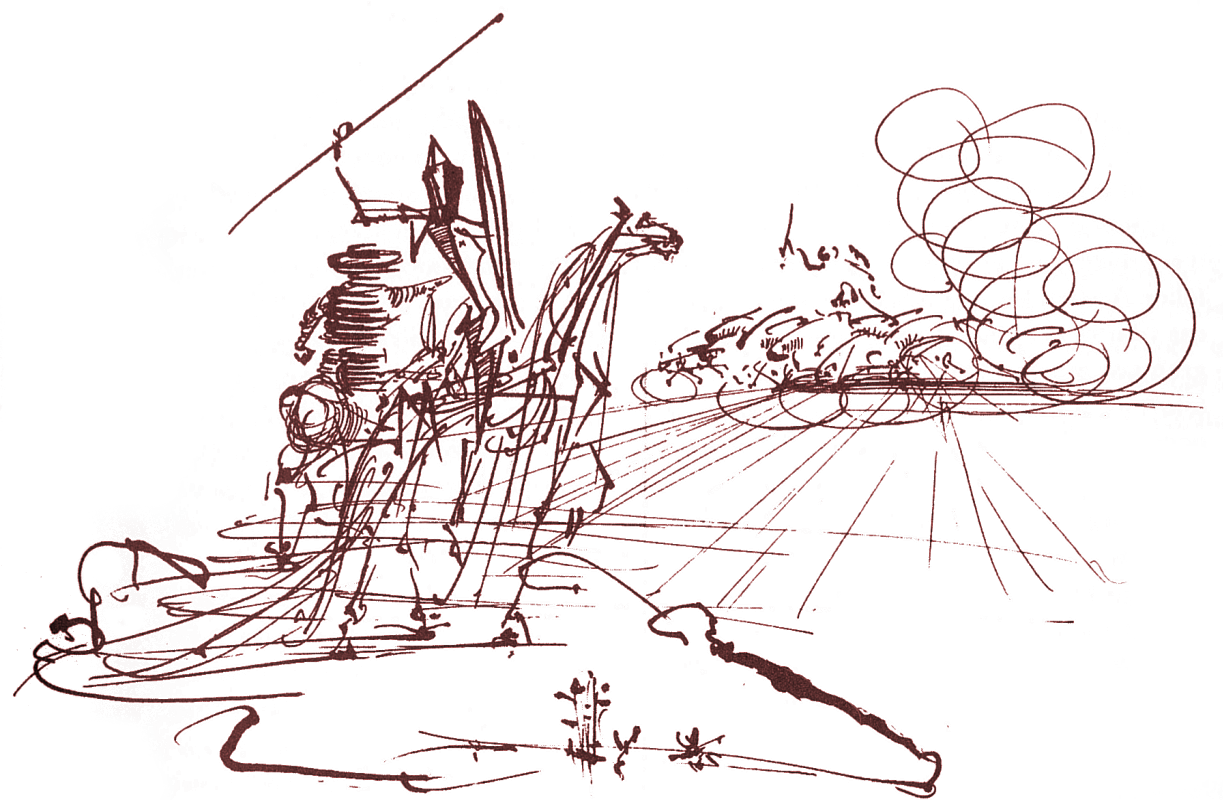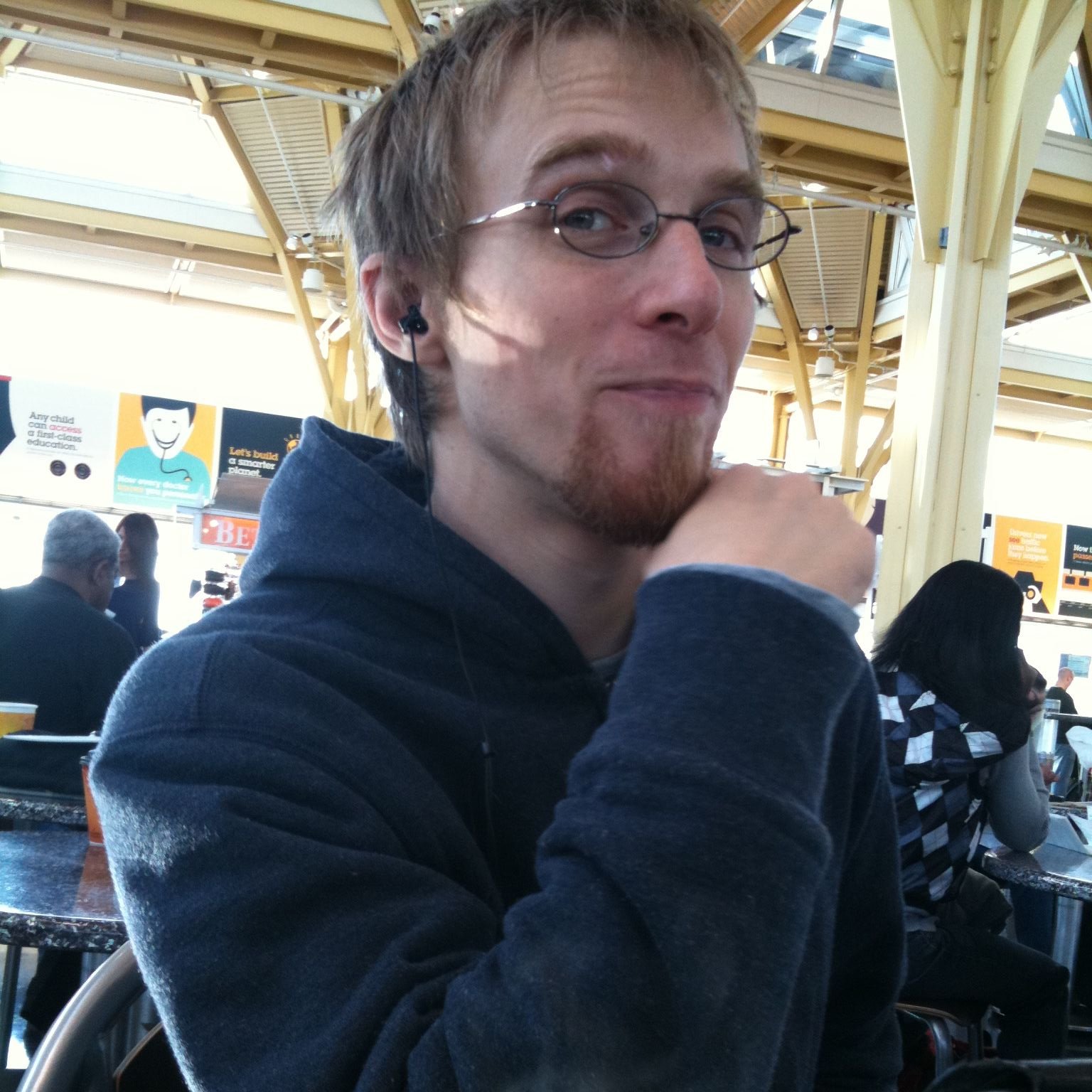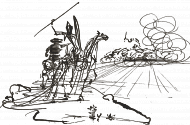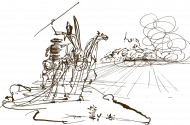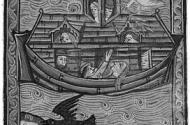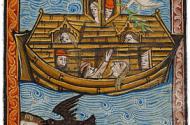Hey everyone!
I recently had the pleasure of experiencing a comic book series compacted into several three-comic-book-long collections called “Lone Wolf and Cub”. It was translated from Japanese. The main character is a ronin: a rootless and masterless samurai mercenary, whose honor is as for sale as his sword. He has a child (the “cub” part of “lone wolf and cub”) who travels with him in a bamboo stroller.
They are denied all attachment to life. Emotionless, their wanderings bring death: severing souls from bodies as they are severed: the walking dead. Their existence is a form of Buddhist hell: meifumado, a living death: a father and a child with no mother and home.
This prison is a place of grey: a Sheol of cinderblock. People are meant to be a part of families: whole functioning human units. All the people here are like arms or noses or heads which flop around in a parody of self-sufficiency. All ronin: with only shadowy roots extending through phone lines and Sunday visits. Meifumado.
The Daoist symbol of the yin and yang represents the dual nature of all things. Without evil, there is no good. Good is precisely the antithesis of evil and vice-versa. As two opposing foils, they complement and interdefine each other. Good and evil each contain traces of the other, and thus there is no pure thing. In the Bible, this viewpoint is championed by King Solomon in Ecclesiastes.
In the Japanese aesthetic, each beauty contains its own tragedy: all beautiful things wither, their beauty fades and corrodes. And what is uglier than despoiled beauty? It reminds us of the frail mortality of all beauty: uglier still for its former beauty. (Or, as Guns ‘N Roses put it, “Every rose has its thorn/ Just like every cowboy/ Sings a sad, sad song.”)
All of my memories of the outside world are all the more tragic the happier they are. Good is inverted through deprivation. Of course, six months is only a ripple in an ocean of waves.
Christian hell is an immortal and infinite thing which can only be comprehended through analogy to human existence. Thus, it is described as a “lake of fire”, a “place of eternal torment”, etc., metaphorically described as unpleasantness infinitely prolonged.
For the Buddhist, hell is very tangible. The unenlightened life is hell. Souls continually recirculate through hellish life after life until enlightenment, upon which they escape to a state of oneness, infinite compassion, etc. This infinitely repeated cycle of life, death, and birth is called samsara: the Wheel of Suffering.
Thus, the Buddhists have captured the self-destructive nature of selfishness and evil. Evil is not only wrong: it is stupid. That’s how Socrates views sin: as ignorance. The Bible points out that the root of all evil is the love of money, which is to say: greed. Greed is an infinite lust that seeks to fill an infinite void with finite things. (Sort of reminds me of mathematics.) Nothing can slake a thirst which thirsts for the infinite but infinity. Infinite greed is just a gaping hole which devours everything it comes upon, and, when everything is eaten, it turns upon and devours itself. Without God in the form of the Infinite, to exist is to crave. That is why godless life is hell. Without an immortal soul that escapes samsarra, all poetry is tragedy and hunger is infinite. And in prison, memory of freedom is hell (without the possibility of release).
My work has fallen into a rhythm. I either chop wood with a splitter or rake leaves. When raking, I feel as though I am picking fleas from a giant, an insatiably itchy gorilla. The din of the splitter used to remind me of a diesel truck inspired by hell-but I have recently acquired a pair of earplugs! Now it’s not so bad. Myron and I are starting to feel like lumberjacks. He has lost 47 pounds in his 4 months here.
I’ve recently filed a PB-8 (an informal complaint resolution form) against a guard for swearing at me. Of course—they cuss out inmates regularly, but nobody complains because the guards harass those that complain until they get them back properly. Profanity, obscenity, and vulgarity are not permitted according to official bureau policy, however, the staff sticks together, which makes complaints hard to pursue but retaliation for complaints very easy to receive. I’m doing it because I think more people should file complaints, not because I need to gratify my pride. At the end of my PB-8 I wrote, “I am aware that I may be subject to forms of retaliation by staff for my persistence in bringing this matter of administrative law and Bureau Standards to the attention of the violating staff member.” This provides me with an automatic defense should they harass me.
I’m also working on an article about the medical care here (atrocious!). That could get me into trouble too. But, they can only harass me for two more months. Then I’m free.
As for books I’ve read since last time: Douglas Adam’s books, “Life, the Universe, and Everything,” and “So Long and Thanks for all the Fish.” Douglas Adams is great. I also read “Stranger in a Strange Land” by Robert Heinlien. That was only okay. It’s supposed to be classic science fiction but it seemed like hippy pseudo-spiritual utopian crap to me. I re-read “God Bless You, Mr. Rosewater” by Vonnegut. That’s gotta be one of my favorite books ever. I read “The Amazing Adventures of Kavalier and Clay” by Michael Chabon. That won a Pulitzer, which it deserved. It was about the holocaust, comic books and Jewish immigrants in NYC. Of course, that makes it sound very dry and perhaps non-fictional, which it was none of. I read the Harry Potter Books, “The Goblet of Fire”, and “The Order of the Phoenix.” Excellent. And I read two serious books: “The Wretched of the Earth” by Frantz Fanon and “Shadows of Tender Fury: the Letters and Communiques of Subcommandante Marcos and the Zapatista Army of National Liberation.” “The Wretched of the Earth: a Negro Psychoanalyst’s Perspective on the Problems of Racism and Colonialism in the World Today” is an extremely enlightening book of the philosophy and psychology of colonialism. Fanon was a psychoanalyst who treated the men and women shattered by the Algerian struggle for national liberation from the colonizing French. It is an unshrinking account of the phenomenon of colonialism: with an eye always for its destruction.
“Shadows” is about the indigenous Zapatista uprising of 1994 in response to the NAFTA treaty which undid a part of the Mexican constitution which Emiliano Zapata had led a revolution to secure, back in the 19th century. Without it, the indigenous people of Chiapas are deprived of their land. This revolution is far different from other Latin American revolutions because it does not seek to seize the power of the State. This revolution’s objectives are for the leaders to learn to lead through following: Justice, Democracy, and Self-Determination.
Well, see y’all in two months!
Solidaridad,
Jeremiah
